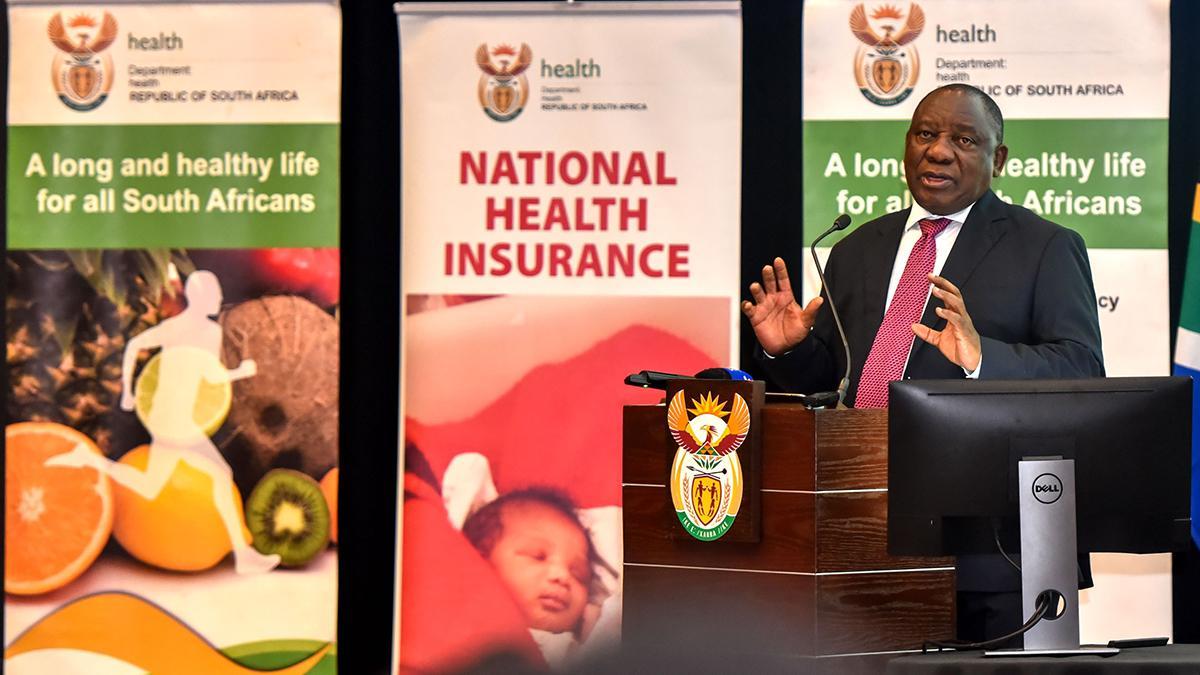Africa-Press – South-Africa. The Department of Health has confirmed that tax increases and other tax changes are on the cards to fund the National Health Insurance (NHI) scheme.
This comes after President Cyril Ramaphosa said at his 2024 State of the Nation Address that he will soon sign the NHI Bill into law.
Ramaphosa ignored threats of legal challenges from organised business over concerns about its constitutionality.
“While our health system has had a great impact on people’s lives, we are working to improve both the quality of healthcare and equality of access,” Ramaphosa said.
He added that the government plans to implement the NHI incrementally and will “deal with issues like health system financing”.
To date, there has been no clarity on exactly how the NHI will be funded. The issue has been pushed back until after the foundation for the NHI Fund had already been made law.
However, it is clear that it will involve tax increases. NHI Deputy Director General Nicholas Crisp said the only way to move medical aid money into the NHI fund is through taxes.
“Whether that is through VAT or other taxes is a matter for the National Treasury and the Money Bill, which will come later,” he said.
Health Minister Joe Phaahla has also confirmed that the funding will likely include tax increases and other tax changes.
In a parliamentary response, he said that clause 49 of the NHI Bill deals with the scheme’s funding.
“Possible tax amendments will be introduced through a Money Bill by the Minister of Finance as and when appropriate and earmarked for use by the fund,” he said.
The Health Minister added that NHI funding is subject to the “transitional arrangements” provided in Section 57 of the Bill.
Clause 49 of the NHI Bill outlines the funding mechanisms for the NHI, which include:
General tax revenue, including shifting funds from government departments and agencies and provincial budgets and conditional grants
The removal and reallocation of funding for medical aid tax credits
Payroll taxes on employers and employees
Surcharges on income tax through a Money Bill by the National Treasury
The “transitional arrangements” mentioned in Section 57 of the bill refer mainly to the timelines for implementing the laws, which run from 2023 to 2028.
Concerns over NHI tax increases
FTI Consulting, which outlined the NHI’s potential cost and how it could be funded, raised concerns over big tax increases related to the scheme.
FTI Consulting said implementing the NHI Bill would require over R200 billion in funding on top of the Department of Health’s annual budget.
“The NHI Bill, in its current form, is not economically viable for South Africa,” FTI said.
“The Department of Health, in its 2017 White Paper on the NHI and the NHI Bill, has flagged sources such as VAT, personal income tax, and payroll taxes for raising additional funding.”
FTI explained that the additional tax amount indicated by the government is not the total cost of the NHI, as it will probably need much more to implement fully.
For context, R200 billion equals 12.8% of South Africa’s current gross tax revenue, 36.1% of personal income tax, 62.4% of corporate income tax, and 51.2% of VAT.
Discovery Group CEO Adrian Gore has previously labelled the NHI irrational in its current form and risks destabilising the tax base.
Gore said the proposal doesn’t sufficiently tackle the core issue of funding being too little for it to be viable.
“The tragedy of our country is a narrow tax base with high levels of unemployment. You don’t have sufficient money to buy comprehensive benefits for all South Africans,” Gore said.
“It just doesn’t seem plausible. You could seriously destabilise the taxpayers that actually are funding the NHI.”
The DA said the South African economy is already beset by one of the most onerous tax regimes in the world.
“Any tax increase will be unduly burdensome, highly regressive, and disproportionately impact lower-income households,” he said.
“We remain committed to the principle of universal access to healthcare for all citizens.”
“However, the NHI Bill is unconstitutional and will only serve to further erode an already ailing national public health sector.”
For More News And Analysis About South-Africa Follow Africa-Press






